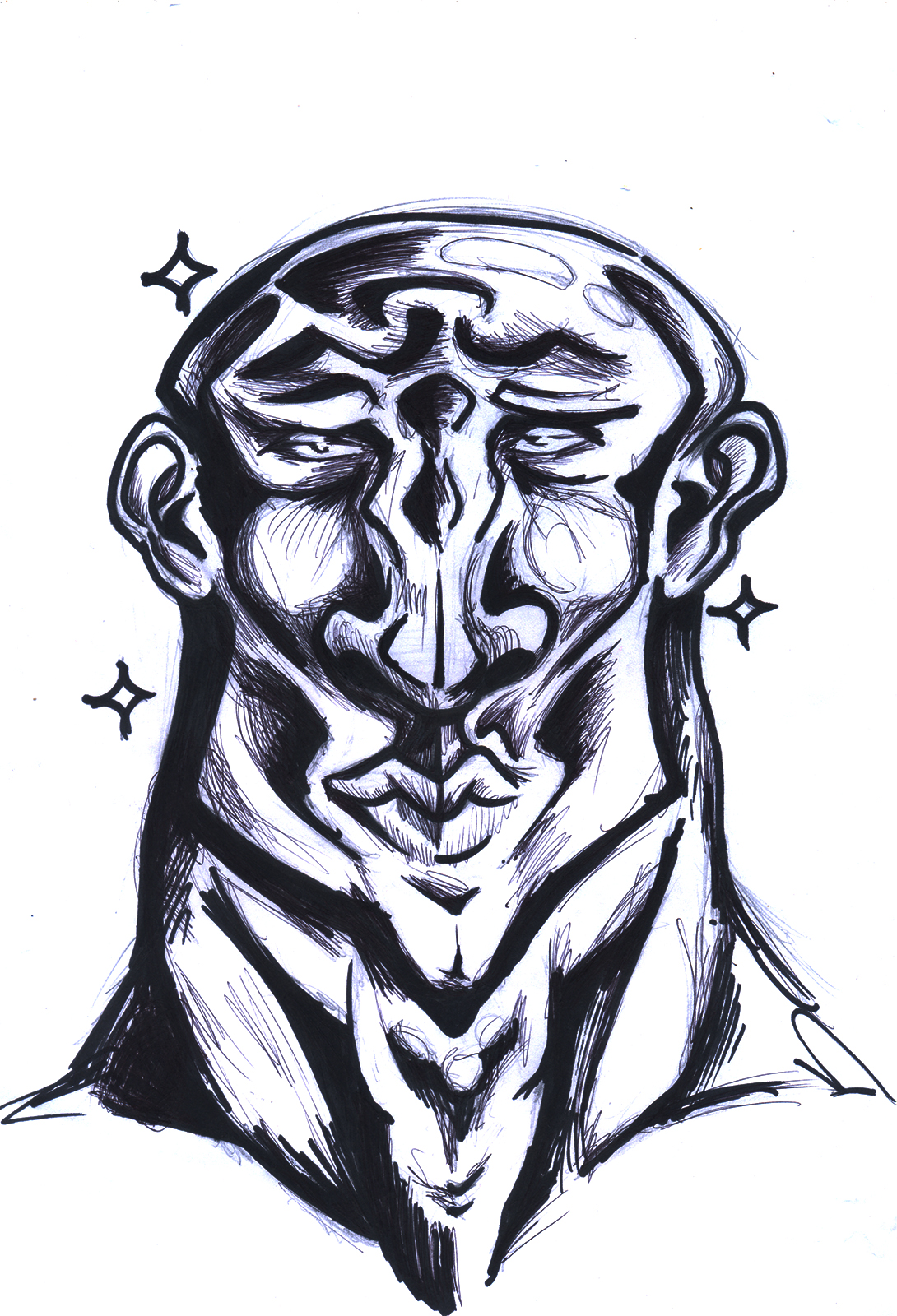Have you ever seen someone act with such overwhelming confidence, almost a kind of self-important strut, that you just knew things would not end well for them? That feeling, that instinct about someone’s over-the-top pride, is that, a glimpse into the very old concept of hubris. It’s a powerful idea, really, something that has echoed through stories and history for ages. Understanding what hubris truly means can help us spot it, perhaps even in ourselves, and consider its often-unpleasant outcomes.
This idea, the meaning of hubris, comes to us from ancient Greece, a place where many deep thoughts about human nature first took shape. In those early days, hubris wasn't just about feeling a bit too pleased with yourself. Oh no, it referred to something far more serious, something that truly violated the natural order of things. It was about actions that shamed and humiliated others, sometimes for the sheer pleasure or gratification of the person doing it, which is quite a chilling thought, actually.
So, even today, when we talk about hubris, we are, in a way, reaching back to those ancient roots. It’s still about that excessive presumption, that arrogant pride that just seems to ignore all warnings. It's a concept that continues to show up in our stories, our media, and even in our daily observations of people. Knowing its full meaning, how it functions, and where it leads, well, that's something worth exploring, isn't it?
Table of Contents
- Ancient Roots of Hubris
- Hubris in Literature and Life
- Recognizing and Avoiding Hubris
- Frequently Asked Questions About Hubris
Ancient Roots of Hubris
The word "hubris" itself, as we know, has its beginnings in ancient Greece. It's not just a fancy literary term; it's a concept that has been around for thousands of years, shaping how people understood human behavior and its consequences. This is that, a really old idea, with deep cultural significance. It’s pretty fascinating to think about how a word from so long ago still holds so much weight today, isn't it?
More Than Just Pride: The Ancient Greek View
In ancient Greek, the meaning of hubris was actually quite specific and, in some respects, more severe than how we often use it now. It referred to something called "outrage." This wasn't just about someone being a little rude or conceited. No, it described actions that truly went against the grain of what was considered natural and right. These were actions that violated the natural order, or which shamed and humiliated the victim. Sometimes, these acts were even committed for the pleasure or gratification of the abuser, which, you know, is a very dark side to it.
Think about that for a moment: it wasn't just about inner feelings of pride. It was about outward actions that caused harm and dishonor. This distinction is quite important, as it highlights the active, damaging nature of hubris in its original context. It was less about a mindset and more about a harmful behavior. So, it's not just a thought, but an action, too, that truly defines it.
Transgressions Against the Gods
Figures like Hesiod and Aeschylus, famous ancient Greek writers, used the word hubris to describe transgressions against the gods. This adds another layer to the meaning of hubris, doesn't it? It suggests that this excessive pride wasn't just an offense against other people, but also a direct challenge to the divine order. A common way that hubris was committed was when a mortal claimed something that was reserved for the gods, perhaps even claiming to be equal to them, which, you know, would really upset the gods!
Imagine someone thinking they were just as powerful or wise as Zeus, or perhaps even more so. That kind of thinking, that overstepping of boundaries, was seen as a grave insult to the deities. It was a belief that one could somehow escape the natural limits of being human. This connection to the divine makes the ancient meaning of hubris feel very grand, very serious, and, arguably, quite terrifying for the person exhibiting it.
Hubris in Literature and Life
Today, the meaning of hubris has broadened a bit, but its core essence remains. It's a literary term, yes, often used to talk about characters in stories, but it also describes a way of talking or behaving that is too proud or arrogant in everyday life. We see it all around us, in a way, if we just look closely enough. It's a very human trait, perhaps one that we all need to be a little mindful of.
A Way of Talking and Behaving
Hubris, as a concept, describes excessive presumption. It's not just a quiet thought; it's something that manifests in how someone acts and speaks. It can be defined simply as arrogance, according to dictionaries like the American Heritage Dictionary of the English Language, 5th edition. So, when someone is displaying a lot of hubris, you can often hear it in their voice, or see it in their posture, can't you? It's that kind of outward show of being too sure of oneself, even when there's little reason for it.
Think of a boxer, for instance, who shouts "I'm the greatest!" even though he's about to get pummeled by a much stronger opponent. That, you know, is displaying a lot of hubris. It's an excess of confidence that just doesn't match the reality of the situation. It's a way of talking or behaving that is just too proud, too overbearing, and, quite frankly, a little out of touch with what’s actually happening. You can learn more about literary terms on our site, which might give you a broader picture.
The Path to Downfall
One of the most defining characteristics of hubris, both in ancient times and now, is that it often leads to downfall. This is, arguably, the central tragic flaw that makes hubris such a compelling concept in stories. A character with this quality typically ignores warnings and laws, and this usually leads to their downfall and even death. It’s almost a predictable pattern, isn't it?
This arrogant pride or excessive ambition, while it might seem like a strength at first, actually contains the seeds of its own destruction. It's the fact of being too proud and ignoring warnings and laws that sets this tragic chain of events in motion. The story of someone with hubris often serves as a powerful cautionary tale, illustrating how overconfidence can blind a person to real dangers and ultimately bring about their undoing. It's a very common theme, actually, in many forms of media and literature.
The meaning of hubris, then, isn't just about pride; it's about the destructive consequences of that pride. It's about a character who overestimates their own abilities and ignores the signs that things are going wrong. This tragic flaw is often seen in characters who believe they are invincible, or perhaps too clever for anyone to stop them. But, you know, life often has a way of proving them wrong, doesn't it?
Losing Touch with Reality
Hubris often indicates a loss of contact with reality and an overestimation of one's own competence, accomplishments, or capabilities. This is a crucial part of its meaning. When someone is truly consumed by hubris, they stop seeing things as they truly are. They might dismiss advice, ignore facts, or simply believe that their own judgment is superior to everyone else's, which is a bit concerning, isn't it?
This detachment from reality is what makes hubris so dangerous. It prevents a person from learning, from adapting, or from recognizing their own mistakes. It's like wearing blinders, but the blinders are made of self-importance. So, when we see someone displaying hubris, we are, in a way, seeing someone who has lost their grounding, someone who believes their own hype above all else. This can be quite a lonely place to be, too, when you think about it.
Recognizing and Avoiding Hubris
Understanding the meaning of hubris is more than just an academic exercise. It helps us to identify this pattern in stories, yes, but also in the world around us, and even within ourselves. Knowing how it originates from ancient Greece, how it refers to outrageous acts that violate natural order, and how it often leads to downfall, gives us a deeper appreciation for its significance. It's a concept that really makes you think about human nature, isn't it?
To avoid falling prey to hubris ourselves, it might be helpful to practice a little humility, to listen to warnings, and to stay connected to reality. It's about recognizing that while confidence is good, excessive pride that ignores others or the truth can be quite harmful. This is, perhaps, a timeless lesson that ancient Greece offered us, and one that remains very relevant today, even in our fast-paced modern world. You can also explore more about this topic by visiting Britannica's definition of hubris, which offers a good, well-rounded perspective.
Frequently Asked Questions About Hubris
People often have questions about this fascinating concept, so here are a few common ones, too, that might help clear things up.
What is hubris in simple terms?
In simple terms, hubris is excessive pride or arrogance that often leads to a person's downfall. It's when someone is too confident and ignores warnings or rules, believing they are above them. It's a bit like believing you can fly just by wishing it, you know, without any real way to do it.
What are some examples of hubris?
An example of hubris could be a boxer shouting "I'm the greatest!" even though he's about to get pummeled by a much stronger opponent. Another might be a leader who ignores all advice and laws, believing their own judgment is perfect, which then leads to their ruin. It's that kind of overestimation of oneself, really, that defines it.
How does hubris lead to downfall?
Hubris leads to downfall because it makes a person lose contact with reality and overestimate their own abilities. This means they ignore important warnings, dismiss good advice, and break rules or laws, thinking they are exempt. This arrogance blinds them to risks, and, quite naturally, their bad decisions eventually cause their failure or ruin. It's a very common pattern, actually, in many stories and even in real life, too.
Detail Author:
- Name : Mr. Theo Gleichner
- Username : tromp.marilou
- Email : haag.clifton@yahoo.com
- Birthdate : 1987-12-06
- Address : 564 Nya Well Apt. 682 Lake Aiden, KY 74764-6116
- Phone : (740) 352-8922
- Company : Wisoky-Nicolas
- Job : Dental Hygienist
- Bio : Numquam rem error eius ut mollitia debitis molestiae. Minima at et laborum fugiat vel. Explicabo ex fugit qui doloribus et.
Socials
linkedin:
- url : https://linkedin.com/in/fritsch2011
- username : fritsch2011
- bio : Odio quia dolorum sed.
- followers : 6258
- following : 2760
twitter:
- url : https://twitter.com/shania_fritsch
- username : shania_fritsch
- bio : Provident sed veniam laboriosam. Est eaque et eaque quaerat ex nihil illum. Nisi nisi aut autem quia rerum cum at sequi.
- followers : 6599
- following : 635


